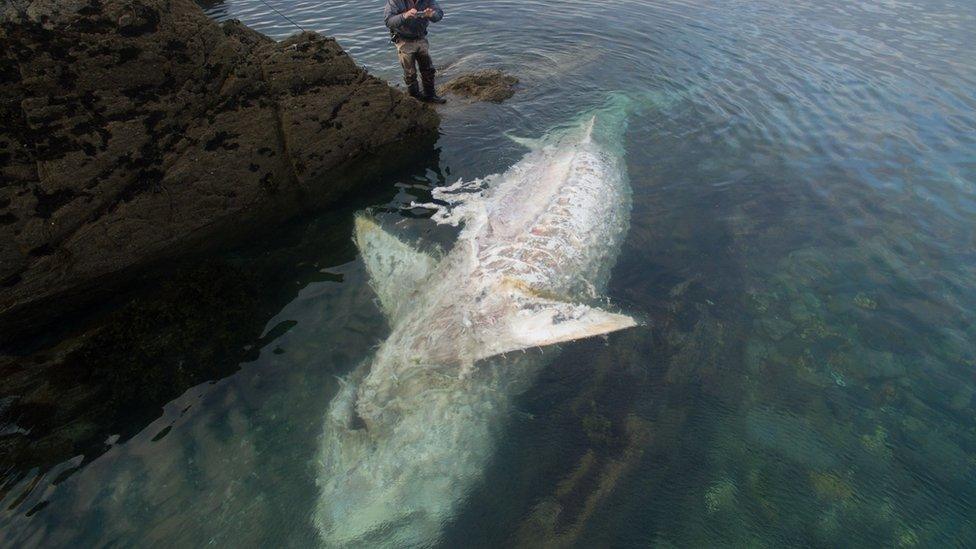Basking shark spotted off Flamborough head
- Published
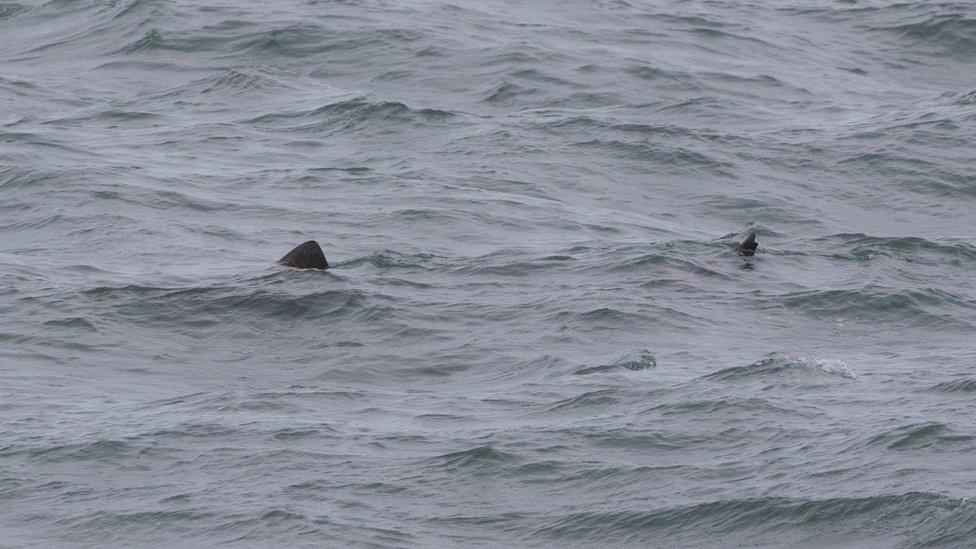
Chrys Mellor photographed a basking shark swimming off the coast of Flamborough Head, near Bridlington
A basking shark, the world's second largest fish, has been spotted off the Yorkshire coast.
The animal was photographed by Chrys Mellor on Sunday morning off Flamborough Head, East Yorkshire, while helping out on a bird watching cruise.
Miss Mellor, an RSPB volunteer from Flamborough, said she was "shocked" to see the three-metre long shark.
The RSPB, which organises the boat trips, said sightings of basking sharks were "more than unusual" in the area.
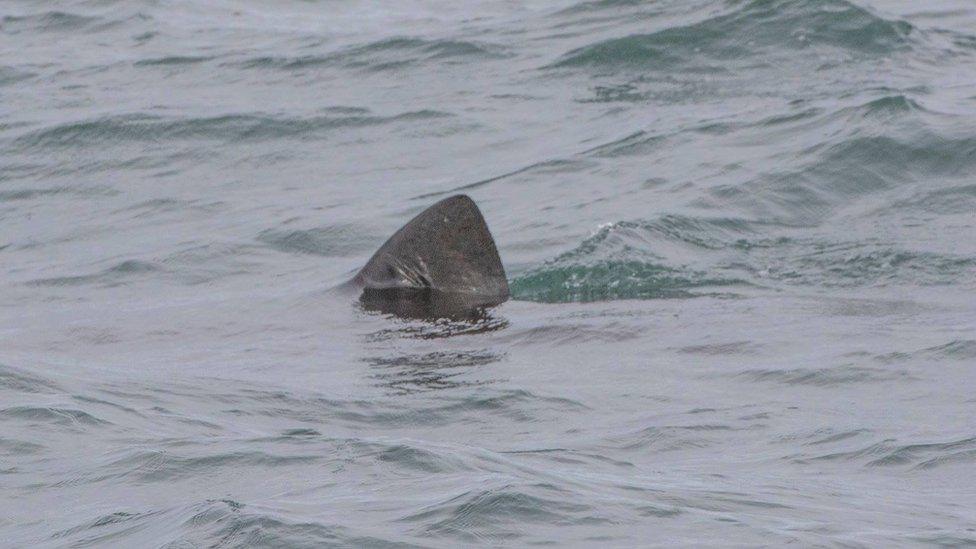
Sightings of basking sharks off the Yorkshire coast are rare
More stories from across Yorkshire
"We'd gone out looking for migratory birds and it was a bit of a shock when the shark went past," said the volunteer.
"It was very exciting."
She said the shark, which was first spotted by one of the 130 guests onboard the Yorkshire Belle, was initially mistaken for a porpoise.
"You hope to see birds, dolphins and whales, but not a shark so it was totally unexpected.
"It just swam past the side of the boat. There were screams and yells all round."
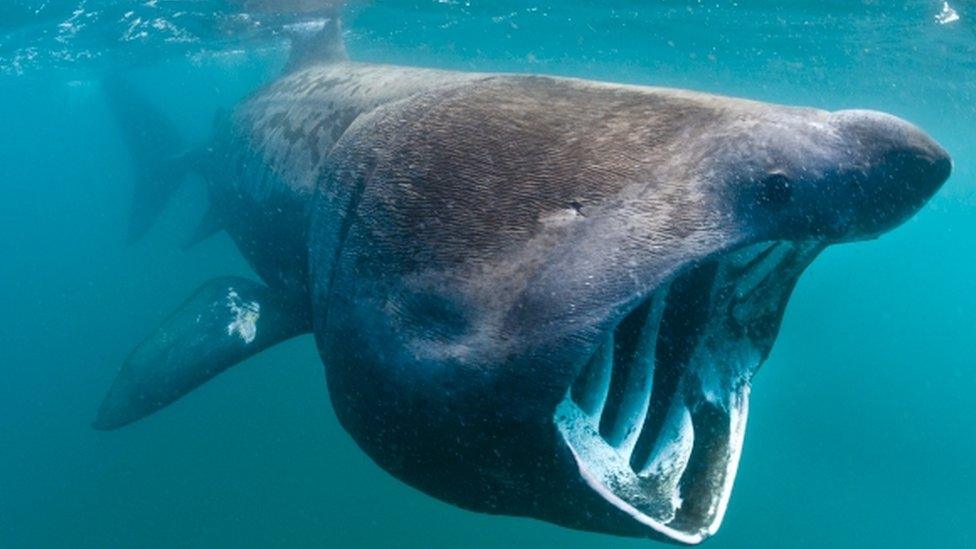
Basking sharks have huge, wide-open mouths and can be seen off Scotland's west coast
Miss Mellor said it was the third time she had spotted a basking shark in the same location since she started volunteering for the charity 30 years ago.
"I feel very, very lucky seeing it three times.
"The first was in 1993 and the other was in 1998."

Basking shark
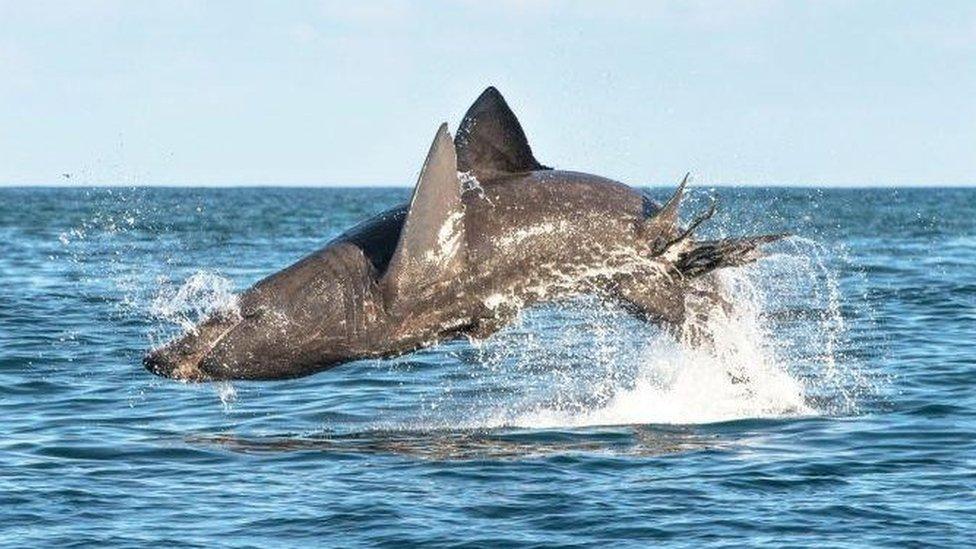
A breaching basking shark
Basking sharks are the world's second biggest fish (after the whale shark) reaching lengths up to 10m (33ft).
They have no teeth and feed on microscopic plankton with their huge, wide-open mouths.
Every summer the sharks gather in large numbers around small islands off Scotland's west coast.
They later migrate south to waters around Madeira and the Canary Islands off west Africa.

- Published20 September 2018
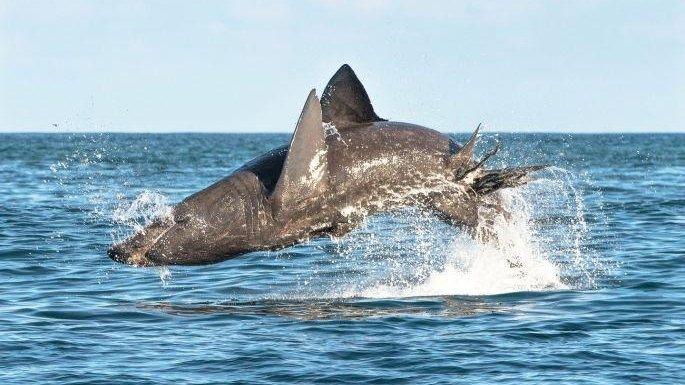
- Published15 August 2018
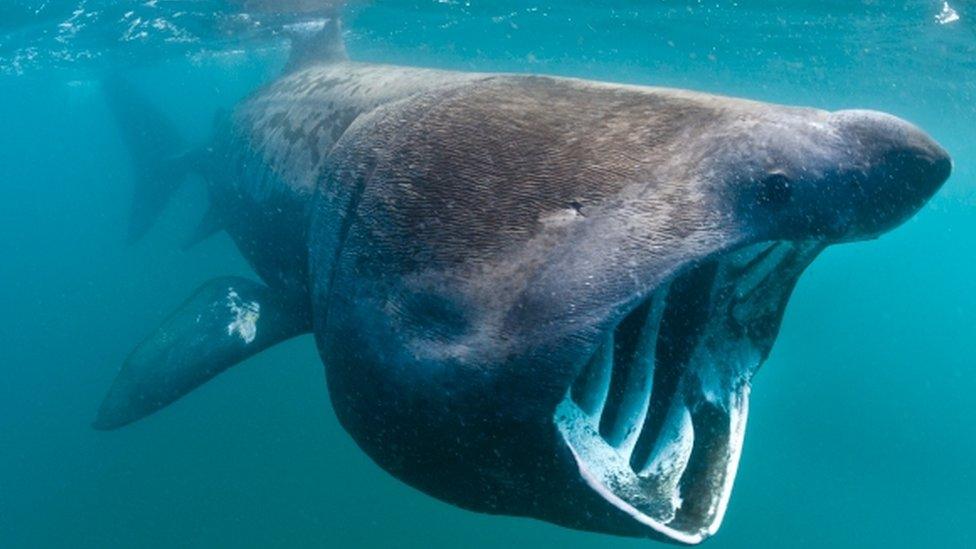
- Published13 June 2018
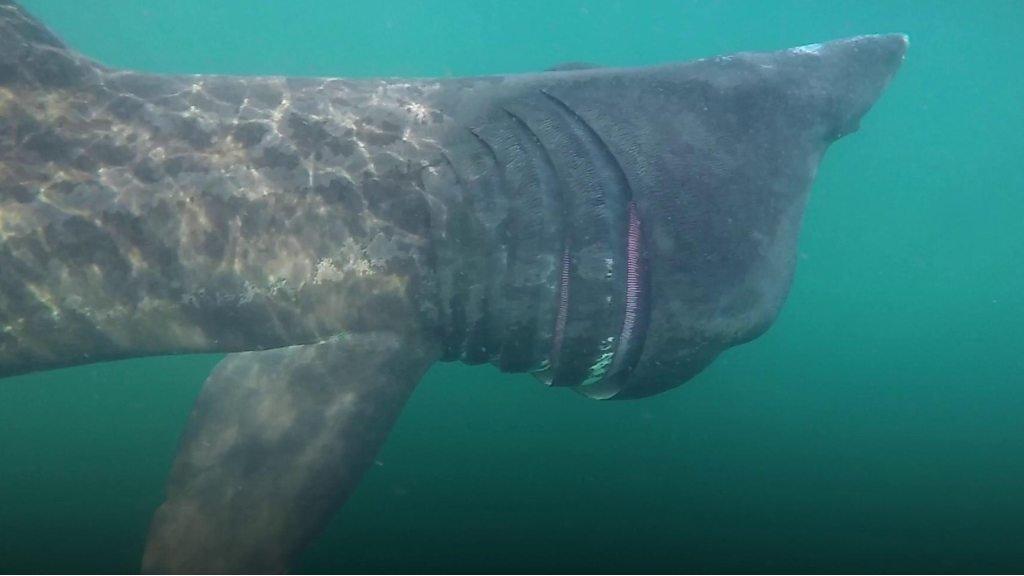
- Published22 August 2017
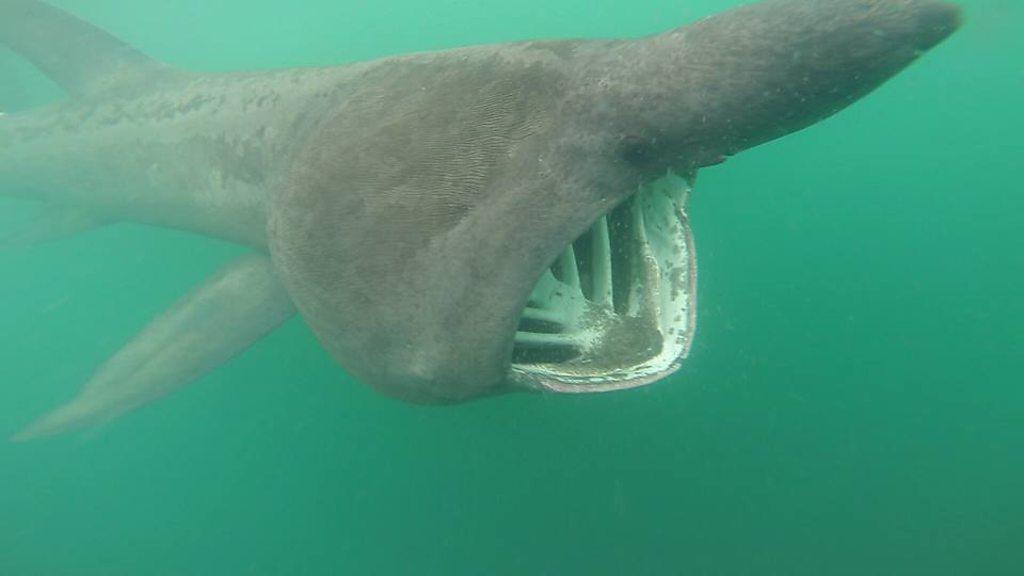
- Published25 April 2017
